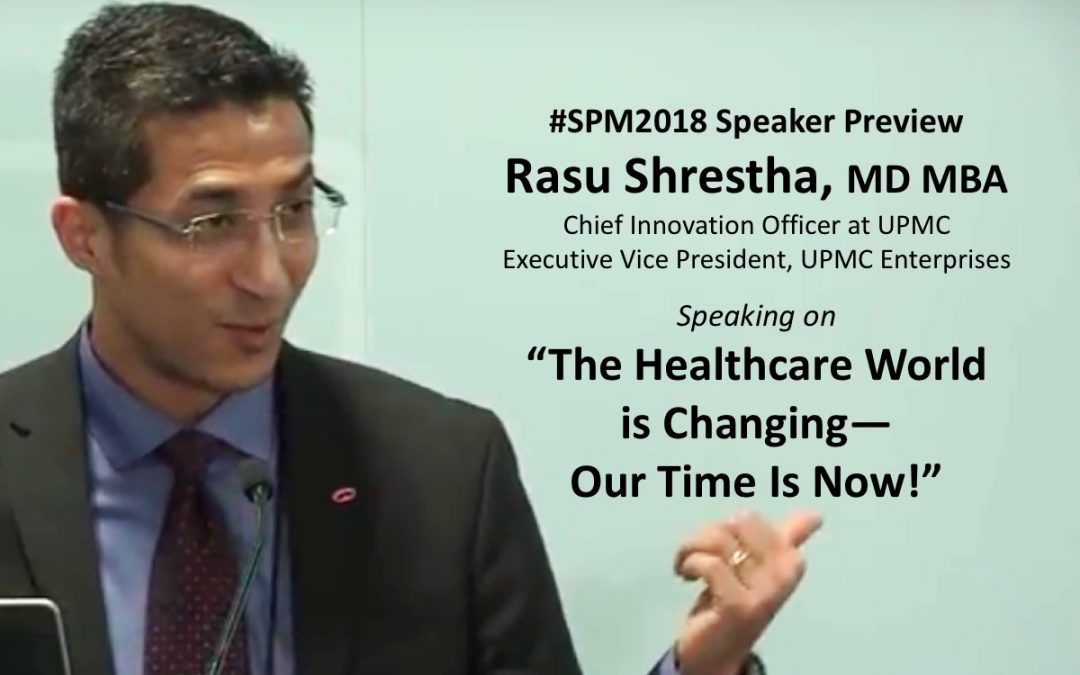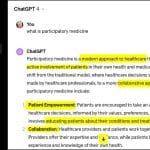Here’s the latest in a series of posts by and about the outstanding speakers we’ve lined up for the Society for Participatory Medicine’s second annual conference on Oct. 17 in Boston, attached to the prestigious Connected Health conference. Register here.
Healthcare is complex. It’s complex for policy makers, for clinicians, for administrators, for vendors – and it’s definitely way too complex for patients, who are the very consumers of healthcare. The irony is that patients interact with healthcare when they are at their most vulnerable states; and the many complexities of healthcare often impede their care. We have to change this – we must!
I draw inspiration from this every day:
“Making the simple complicated is commonplace; making the complicated simple, awesomely simple, that’s creativity.”
Charles Mingus
Mingus was a jazz musician, and jazz is improv. It’s innovation – doing something that’s never been done, because it’s what the moment calls for.
And that’s what we need to do as we re-imagine the future of healthcare. To re-think what “health” and “care” should really be about – to look at all of the complexities of healthcare as we know it today, and boil it down to the simplest elements of what it really needs to be, and how to get to those end points.
Healthcare should not just be about curing an illness, although I would argue that we need to do everything possible to optimize care processes and algorithms and treatment pathways – pushing on the very edges of science, technology and medicine. Healthcare should however also be about staying away from hospitals in the first place. Simplistically, healthcare should grow its focus from mere surviving, to thriving.
And a key path to enabling this goal is via a renewed approach to care: where we move from paternalistic medicine to participatory care. Where we are able to truly take a person-centered approach to care, working collaboratively across care teams taking into account the patient’s preferences, goals, active input, and engagement also from their circle of trust.
Alas, as much as we pull our hair apart dealing with challenges around data and analytics and interoperability – the reality is that what we really need to strive for is behavior change. And meaningful behavior change only happens when the patient is a true participant in their care – and when we are able to holistically look at all elements of what makes that n-of-1 truly thrive.
Join Us for #SPM2018 in Boston October 17
Learn more about SPM’s second annual conference on Oct. 17 in Boston or register here today ($100 for members/$150 for non-members). In our early years it’s priced as a great bargain for a full day. And see this blog’s #SPM2018 series for more about, or by, the speakers and activities.
Rasu Shrestha, MD MBA, is Chief Innovation Officer at UPMC, and Executive Vice President, UPMC Enterprises, the innovation and commercialization arm of UPMC. He seems to be everywhere: here he is speaking at the HIMSS conference this past March in Las Vegas. His actions are being noticed: Becker’s Hospital Review named one of the 26 “Smartest People in Health IT,” and InformationWeek named him one of the “Top 20 Health IT Leaders Driving Change” and a “Top Healthcare Innovator.” Twitter @RasuShrestha







Moving from away paternalism sounds ideal but the truth is there would be some problems. From example, treating a patient who has no knowledge about biological systems, the body, diseases, etc. vs treating a patient that knows a bit about medicine. One of them will understand better his situation than the other. Then, how do we deal with levels of education? How we can make sure the patient will make the best decision (assuming he wants the treatment with the better outcome)? I am not saying medics should take over the autonomy of the patient, but putting all the weight in the shoulders of the patient doesn’t seem like the best decision. After all, medics study/practice about 5 years, then how can we explain and make sure the patient understands complicated diseases a brief consult.
Hi Lewis – who said anything about “putting all the weight on the shoulders of the patient”?? If you have a look at our society’s website and our conference page, you’ll see we’re about participatory medicine, not the “Who needs doctors??” society. :-)
I’d add to Dave’s comment that there’s a difference between responding to different patients’ levels of understanding and being paternalistic and condescending. There are ways to talk to patients at all levels that are infused with respect and include the opportunity for shared decisions.